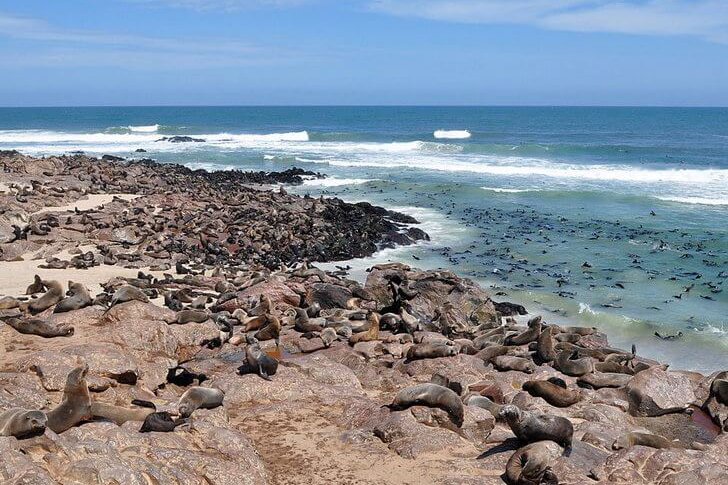In the recent past, Namibia has experienced difficult events - the capture of the colonialists and the apartheid regime, the war for independence and the extermination of indigenous tribes. This is one of the most resource-rich countries in West Africa, there are diamond mines, deposits of copper, gold, and uranium. Tourism in Namibia is still poorly developed. People come here for wild African exoticism, unearthly landscapes of the Namib and Kalahari deserts, the beauty and diversity of the Namib Naukluft and Etosha national parks.
The most famous tourist places in Namibia are Sandwich Harbor, Sossusvlei, Skeleton Coast. Here, travelers are offered photo safari trips, excursions to nature reserves, flights over the desert on airplanes, helicopters and hang gliders. In some border areas of the country, access is possible only in large groups, accompanied by an armed convoy due to the turbulent situation.
A trip to Namibia cannot be called completely safe, but the authorities are working to attract foreigners, new hotels are being built, infrastructure is improving. The country expects to actively develop the direction of beach tourism, as it has a long and picturesque coastline.
What to see in Namibia?
The most interesting and beautiful places, photos and a brief description.
City of Swakopmund
A resort town on the coast of the Atlantic Ocean, where the leadership of Namibia likes to come on vacation. The architecture clearly shows the influence of the German colonialists, so the town looks like a cozy European province. There are also healing mineral springs, which makes Swakopmund a balneological resort.
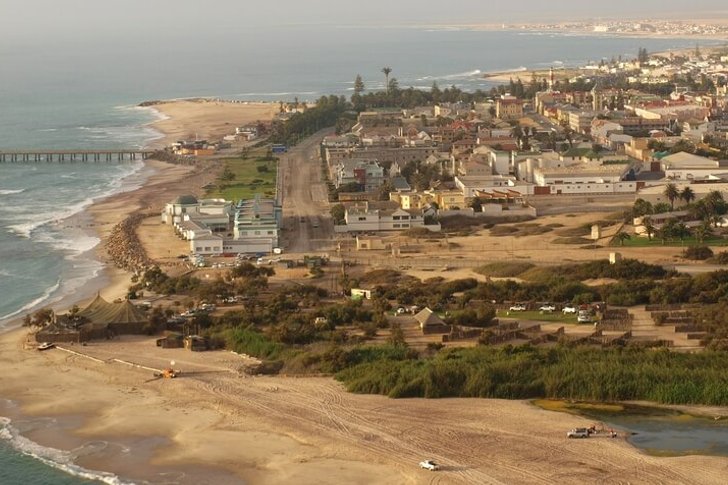
Ghost town Kolmanskop
Once a thriving diamond mining town in the Namib Desert. At the beginning of the 20th century, there was a lively settlement with beautiful European-style houses, a school, a hospital and a swimming pool. But the discovery of other, richer deposits forced the inhabitants to leave the city. Gradually, the sands brought all the buildings. The area has now been turned into a museum.
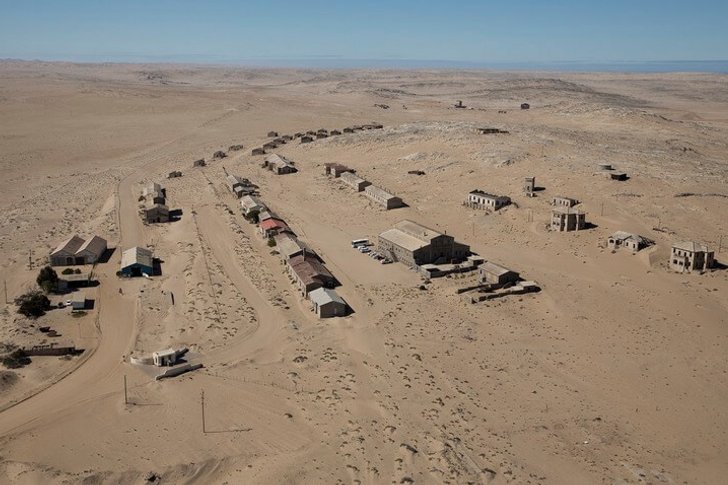
Namib Desert
The oldest desert on the planet, it has existed since the time of the dinosaurs. This area is also called the "desert of fogs" because of the constantly swirling water vapor above the surface. Plants grow here that can live for 1000 years and do without moisture for decades, and the amazing Himba tribe lives here, living according to primitive laws.
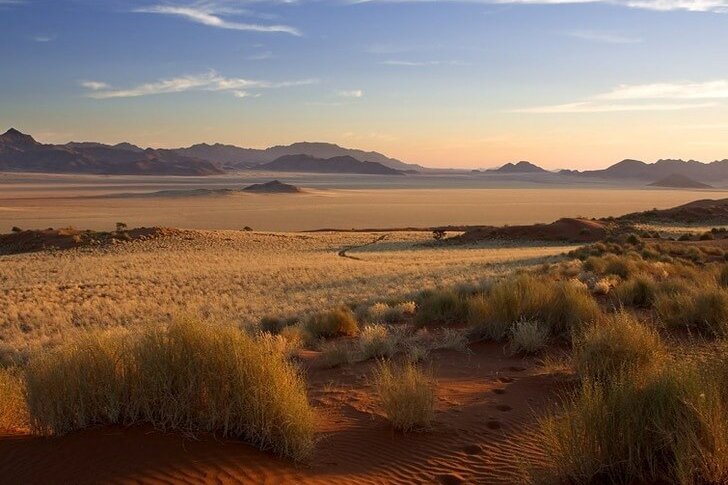
Sossusvlei plateau
Located in the Namib Desert. The area is popular with tourists due to the high picturesque red sand dunes. The best time for viewing is at sunset or dawn, when the landscape is painted in scarlet and crimson colors, and the area becomes like the surface of some distant planet.
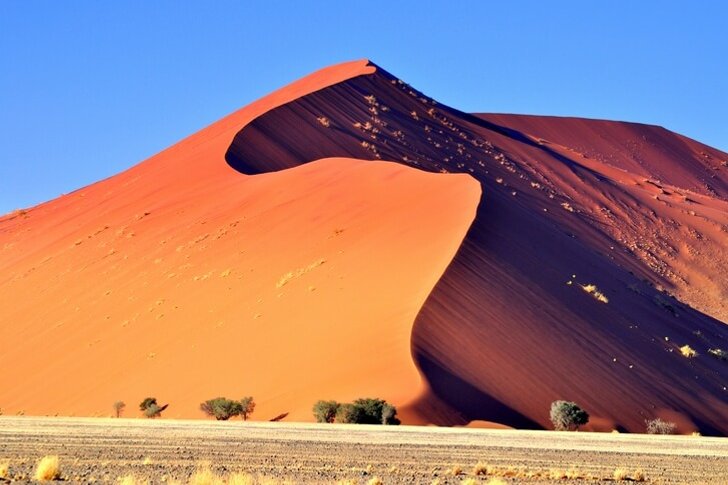
Rock paintings in the Twyfelfontein valley
These images appeared during the Neolithic period. For centuries, the tribes engaged in gathering and hunting lived in the valley, they left behind a large number of drawings. The oldest of them is over 5 thousand years old, the newest is about 500 years old. The pictures for the most part depict different African animals.
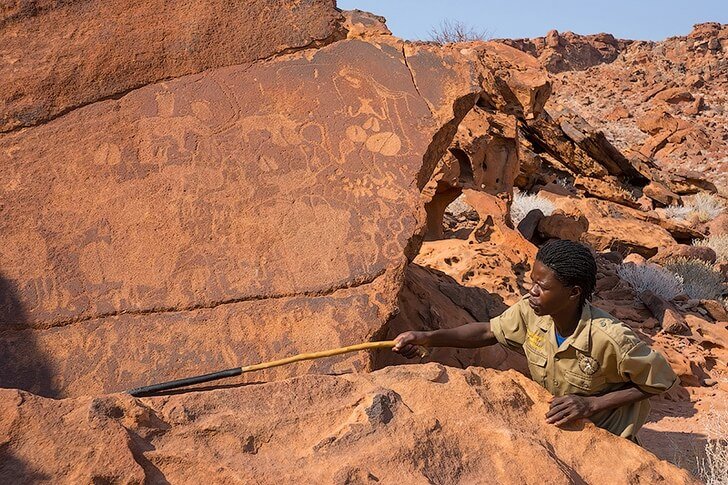
Etosha National Park
A large nature reserve in the north of the country on the edge of the Kalahari Desert. It is home to 140 bird species, 114 animal species and 112 reptile species. Many of them are rare and endangered. Here you can see lions, elephants, giraffes, rhinos and antelopes. At the beginning of the 20th century, the reserve was the largest in the world, but lost 75% of its territory due to political conflicts.
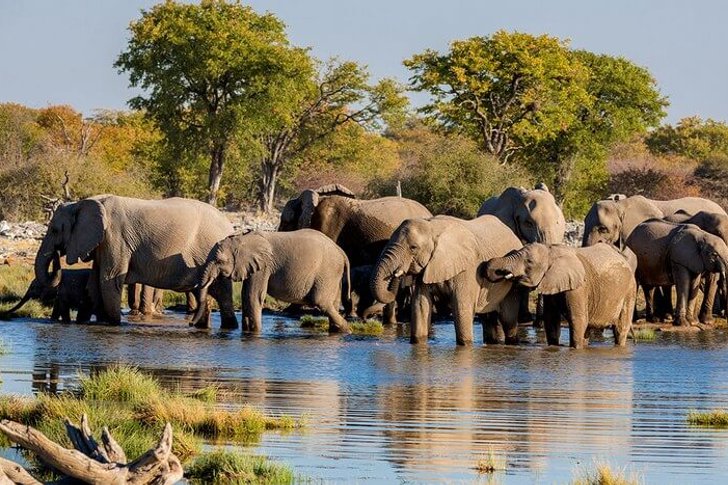
Skeleton Coast
The coastal area from the Ugab River to the Kunene River is about 500 kilometers long. The remains of dozens of wrecked ships lie here. Some debris was carried almost a kilometer inland due to the winds and the movement of the sands. Almost all crew members died due to the inability to reach settlements.
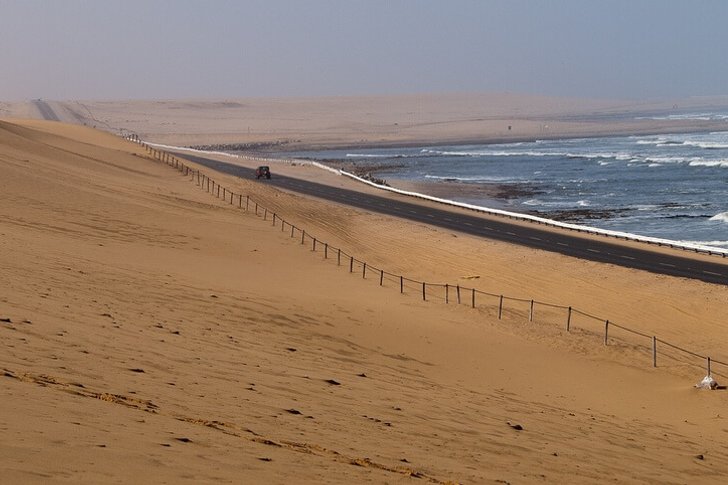
Waterberg National Park
It is located on a rocky plateau 300 km. from the capital of the country. Due to the subtropical climate, it is covered with lush green vegetation. At the foot of the plateau, arid savanna, typical of Africa, prevails; forests and shrubs with rare representatives of the local flora grow on a hill.
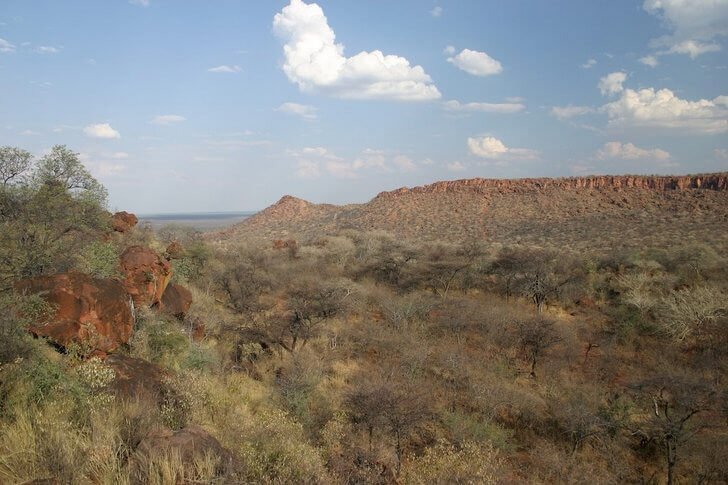
Spitzkoppe
A granite rock over 100 million years old, around which the reserve of the same name is located. This peak is often visited by climbers, although it is not the highest in the region. At the foot of the cliff, you can see a lot of Bushman drawings, zebras, antelopes and gazelles roam around.
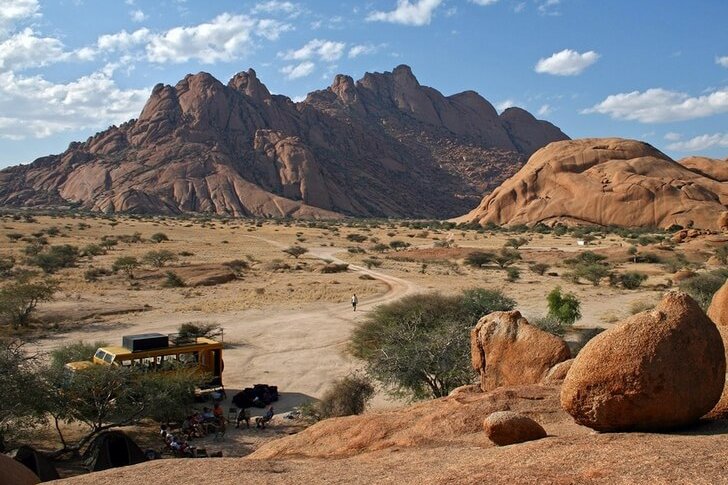
Fish River Canyon
The largest canyon in Africa, second in size only to the American Grand Canyon. It reaches 160 km in length, 28 km in width, and the depth of the depression is about 500 m. Here you can admire basalt rocks, aloe thickets, and thermal springs. Viewing platforms are equipped for tourists.
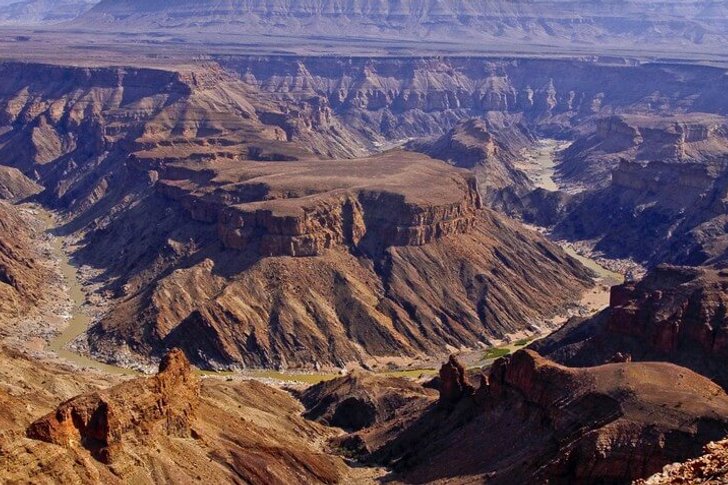
Duvisib Castle
The structure was built by a German baron for his wife. Local red sandstone was used as the material, interior items and decorations were delivered by ships from Germany. Now there is a museum there, which contains luxury items, paintings and collections of weapons.
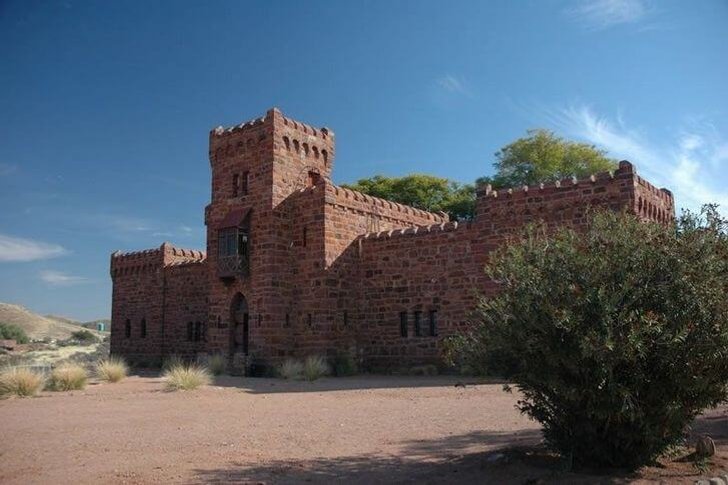
Cape Cross
The reserve, where fur seals live in large numbers. Wooden passages were built through the rookery of these funny animals, along which tourists walk and viewing platforms are organized. Locals have started selling souvenirs and various knick-knacks. Excursions from Swakopmund are regularly organized to the cape.
